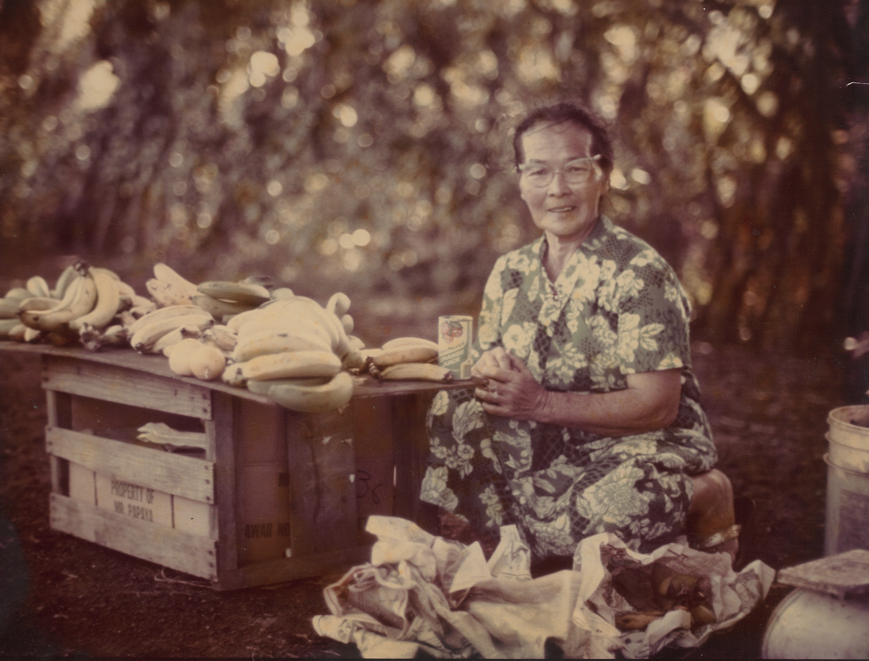The story of the woman who was the inspiration behind one of Hawaii’s most iconic songs.
Early in the morning, she would gather all her island fruits,
And pack them as she starts another day.
Carefully she makes her way beside the mountain stream,
As she sings an island chant of long ago.
Sweet lady of Waiāhole,
She’s sitting by the highway
Selling her papaya
And green and ripe banana
-Bruddah Waltah, “Sweet Lady of Waiāhole”
The woman who inspired the song above is Fujiko Shimabukuro, born in Kohala, Hawai‘i on March 18, 1914. She moved to Okinawa when she was 3 and returned to Hawai‘i at 18. She married Koji Matayoshi and wound up in Kahalu‘u, where they had eight children, five daughters and three sons.
Locals know her as the “Sweet Lady of Waiāhole,” but, says her daughter Nancy, “She wasn’t a sweet lady. She was mean to us! My mother did all the disciplining in the house, and she broke so many wooden hangers on us.”
Fujiko eventually moved from Kahalu‘u to Waiāhole, where her husband and her husband’s father started farming a 10-acre plot of land that was leased to them by the McCandless family. Ironically, the farm’s main crop was sweet potato.
In addition to papaya and banana, as mentioned in the song, the Matayoshis grew mango, watermelon and cucumber – and continue to do so today.


After her husband died, Fujiko needed a way to support her children, so every day, she would gather all her fruits in a wheelbarrow and wheel them down to sell on Kamehameha Highway.
“I remember one time she sold a Hayden mango to a tourist for $5,” recalls Nancy, who often helped her mother selling the roadside fruits. “And we’re talking about 26 years ago. I don’t know if they just didn’t know or they felt sorry for her, but I remember feeling so embarrassed. Every week, there was a lot of coins to count, and I would help her deposit money into the bank.”
Fujiko passed away on Marcy 30, 1985. After 18 years of selling fruit, she had accumulated $20,000.
A year after Fujiko died, Nancy says they heard the song playing on KCCN. Nancy wrote to Mountain Apple Company, and Gordon Broad, who wrote the song, ended up coming to her house to get pictures of Fujiko for a laser disk he was producing.
The laser disk would eventually go into almost every karaoke bar on the island.
Of course, Nancy remembers her mother’s sweet side too: “The neighbors, when they saw us, they would always say our mom was the kindest woman. She would make sweet potato tempura and give out to all the kids at the Waiāhole School basketball court. Or she would give to the kids who swam in the swimming hole behind our house. Sometimes she’d make andagi with chocolate or sweet potato inside. She always had something for them to eat.”

